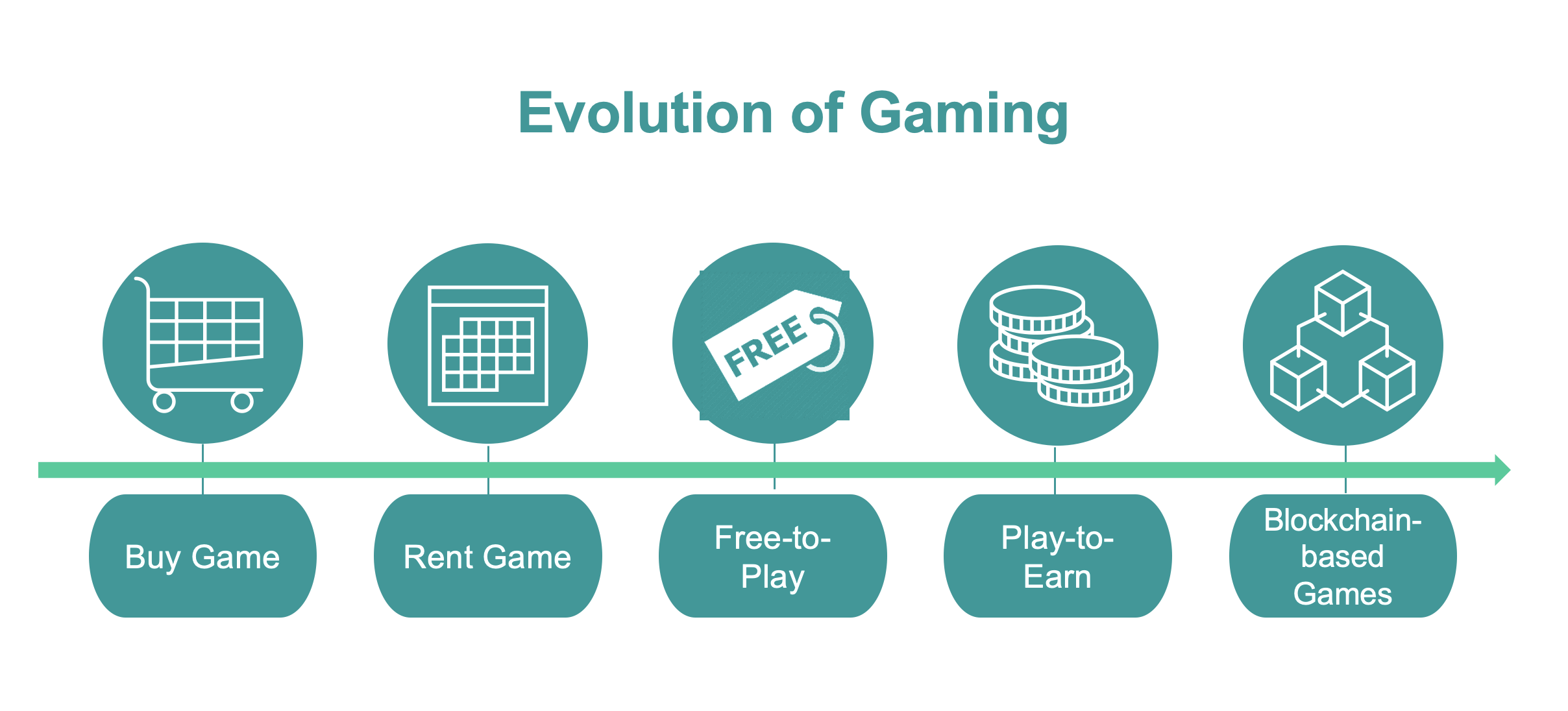The Evolving Landscape of Online Gaming in 2025: A Comprehensive Exploration
Related Articles: The Evolving Landscape of Online Gaming in 2025: A Comprehensive Exploration
Introduction
With enthusiasm, let’s navigate through the intriguing topic related to The Evolving Landscape of Online Gaming in 2025: A Comprehensive Exploration. Let’s weave interesting information and offer fresh perspectives to the readers.
Table of Content
The Evolving Landscape of Online Gaming in 2025: A Comprehensive Exploration

The year 2025 is projected to witness a significant evolution in the online gaming landscape, driven by technological advancements, evolving player preferences, and the increasing integration of gaming into various aspects of daily life. This exploration delves into the key trends and developments shaping the future of online gaming, analyzing the factors that will contribute to its continued growth and impact on society.
Technological Advancements Fueling Innovation
The foundation of the online gaming experience in 2025 rests on a bedrock of technological advancements. The widespread adoption of 5G networks will enable faster download speeds, lower latency, and more stable connections, crucial for seamless gameplay across various devices. Cloud gaming services will further enhance accessibility, allowing players to stream high-quality games on virtually any device with an internet connection.
Virtual Reality (VR) and Augmented Reality (AR) technologies will continue to refine the gaming experience, creating immersive and interactive environments. VR will provide players with a sense of physical presence within the game world, while AR will seamlessly blend digital elements with the real world, blurring the lines between reality and virtual reality.
The advent of advanced artificial intelligence (AI) will revolutionize game development and gameplay. AI-powered NPCs will exhibit more realistic and engaging behaviors, adapting to player choices and creating dynamic and unpredictable experiences. AI will also streamline game design processes, enabling the creation of more complex and immersive game worlds.
Evolving Player Preferences and Demographics
The online gaming audience is rapidly evolving, with demographics shifting and preferences changing. The rise of mobile gaming has broadened the player base, attracting casual gamers who prefer accessible and convenient gameplay experiences. This trend has led to the development of more diverse game genres, catering to a wider range of interests and play styles.
The increasing popularity of esports has also contributed to the evolution of online gaming. Esports tournaments draw millions of viewers worldwide, showcasing the competitive nature of gaming and fostering a sense of community among players and fans. This has led to the emergence of professional gamers and the development of specialized training programs, further blurring the lines between entertainment and professional sport.
Integration into Daily Life and Social Impact
Online gaming is no longer confined to the realm of entertainment. It is increasingly integrated into various aspects of daily life, impacting education, healthcare, and social interaction. Educational games are being used to enhance learning experiences, making complex concepts more engaging and accessible. Healthcare professionals are utilizing VR and AR technologies to train surgeons and provide immersive therapy for patients suffering from phobias and other conditions.
Social interaction within online games has become a significant aspect of the gaming experience. Players form communities, collaborate on tasks, and engage in social activities within the virtual world. This fosters a sense of belonging and connection, particularly for individuals who may face challenges in forming real-life social connections.
The Future of Online Gaming: A Look Ahead
The online gaming landscape in 2025 is poised for continued growth and innovation. The convergence of technology, evolving player preferences, and the increasing integration of gaming into daily life will lead to new and exciting experiences.
Key Trends Shaping the Future:
- Metaverse Integration: The development of the metaverse will further blur the lines between the physical and digital worlds, creating persistent virtual environments where players can interact, socialize, and participate in a wide range of activities.
- Play-to-Earn Models: The rise of blockchain technology and cryptocurrency will lead to the emergence of play-to-earn gaming models, allowing players to earn real-world rewards for their in-game achievements.
- Personalized Gaming Experiences: AI will play a crucial role in creating personalized gaming experiences, tailoring game content and difficulty levels to individual player preferences and skill levels.
- Increased Accessibility: Cloud gaming and mobile gaming will continue to expand access to online gaming, making it available to a wider audience regardless of their geographical location or device capabilities.
Benefits and Challenges:
The future of online gaming presents both opportunities and challenges. The potential benefits include:
- Enhanced Entertainment and Engagement: Online games will continue to offer immersive and engaging experiences, providing entertainment and escapism for players of all ages.
- Educational and Therapeutic Applications: Gaming technologies will be used to enhance learning and provide therapeutic benefits, promoting cognitive development and improving mental well-being.
- Economic Growth and Job Creation: The growing online gaming industry will create new jobs and contribute to economic growth, fostering innovation and entrepreneurship.
However, there are also potential challenges:
- Addiction and Mental Health Concerns: Excessive gaming can lead to addiction and negatively impact mental health, requiring responsible gaming practices and support for players struggling with addiction.
- Cybersecurity Risks: Online gaming environments are susceptible to cybersecurity threats, requiring robust security measures to protect player data and prevent fraud.
- Social Isolation and Real-World Disconnect: Spending excessive time in virtual worlds can lead to social isolation and a disconnect from real-world relationships, highlighting the importance of maintaining a healthy balance between online and offline activities.
Conclusion:
The online gaming landscape in 2025 will be characterized by technological advancements, evolving player preferences, and increasing integration into daily life. The future holds immense potential for innovation and entertainment, but it also presents challenges that must be addressed to ensure responsible and sustainable growth. By embracing the opportunities and mitigating the risks, online gaming can continue to evolve as a powerful force for entertainment, education, and social connection.
FAQs on Online Gaming in 2025
1. What are the key technological advancements driving the evolution of online gaming in 2025?
The key technological advancements driving the evolution of online gaming in 2025 include:
- 5G Networks: Enabling faster download speeds, lower latency, and more stable connections for seamless gameplay.
- Cloud Gaming Services: Providing access to high-quality games on various devices with an internet connection.
- Virtual Reality (VR) and Augmented Reality (AR): Creating immersive and interactive gaming experiences.
- Artificial Intelligence (AI): Revolutionizing game development and gameplay with AI-powered NPCs and game design tools.
2. How are player preferences and demographics evolving in the online gaming space?
Player preferences and demographics are evolving in the following ways:
- Rise of Mobile Gaming: Attracting casual gamers with accessible and convenient gameplay experiences.
- Popularity of Esports: Fostering a sense of community and competitive spirit among players and fans.
- Growing Diversity in Game Genres: Catering to a wider range of interests and play styles.
3. How is online gaming being integrated into daily life beyond entertainment?
Online gaming is being integrated into various aspects of daily life, including:
- Education: Enhancing learning experiences with educational games.
- Healthcare: Training surgeons and providing immersive therapy for patients using VR and AR.
- Social Interaction: Fostering communities and connections among players within virtual worlds.
4. What are the key trends shaping the future of online gaming?
The key trends shaping the future of online gaming include:
- Metaverse Integration: Creating persistent virtual environments for interaction, socialization, and various activities.
- Play-to-Earn Models: Allowing players to earn real-world rewards for their in-game achievements.
- Personalized Gaming Experiences: Tailoring game content and difficulty levels to individual player preferences.
- Increased Accessibility: Expanding access to online gaming through cloud gaming and mobile gaming.
5. What are the potential benefits and challenges associated with the future of online gaming?
The potential benefits of the future of online gaming include:
- Enhanced Entertainment and Engagement: Providing immersive and engaging experiences.
- Educational and Therapeutic Applications: Enhancing learning and providing therapeutic benefits.
- Economic Growth and Job Creation: Creating new jobs and contributing to economic growth.
The potential challenges include:
- Addiction and Mental Health Concerns: Requiring responsible gaming practices and support for players struggling with addiction.
- Cybersecurity Risks: Requiring robust security measures to protect player data and prevent fraud.
- Social Isolation and Real-World Disconnect: Highlighting the importance of maintaining a healthy balance between online and offline activities.
Tips for Navigating the Evolving Online Gaming Landscape
- Stay Informed: Keep abreast of technological advancements, evolving trends, and industry news to understand the changing landscape of online gaming.
- Embrace New Technologies: Explore VR, AR, and cloud gaming services to enhance your gaming experience and access new possibilities.
- Cultivate a Healthy Balance: Prioritize real-world relationships and activities to avoid excessive gaming and potential negative consequences.
- Practice Responsible Gaming: Set time limits, take breaks, and seek help if you experience gaming addiction or other issues.
- Engage in Online Communities: Join gaming communities to connect with other players, share experiences, and learn from each other.
- Support Responsible Development: Encourage game developers to prioritize responsible gaming practices, inclusivity, and ethical development.
Conclusion:
The online gaming landscape is in a constant state of evolution, driven by technological advancements, changing player preferences, and the increasing integration of gaming into various aspects of daily life. By understanding the key trends, embracing new technologies, and practicing responsible gaming habits, individuals can navigate the evolving landscape and enjoy the benefits of this dynamic and ever-growing industry. As online gaming continues to evolve, it is crucial to approach it with a balanced perspective, embracing its potential while addressing its challenges to ensure a positive and sustainable future for all.








Closure
Thus, we hope this article has provided valuable insights into The Evolving Landscape of Online Gaming in 2025: A Comprehensive Exploration. We hope you find this article informative and beneficial. See you in our next article!